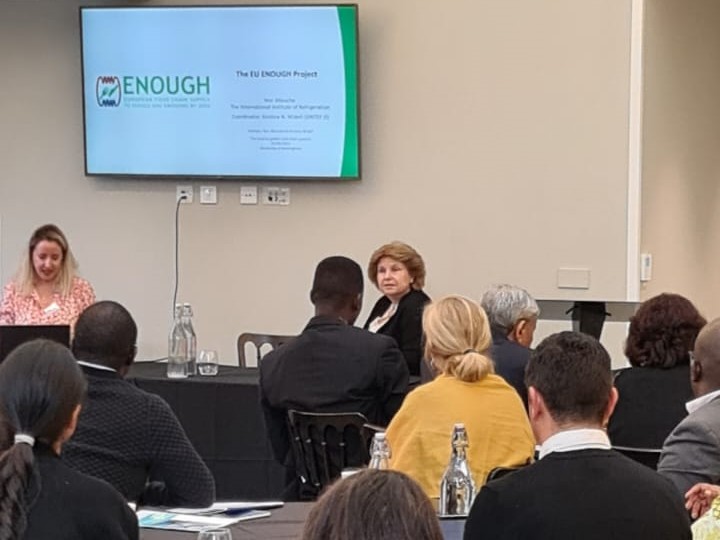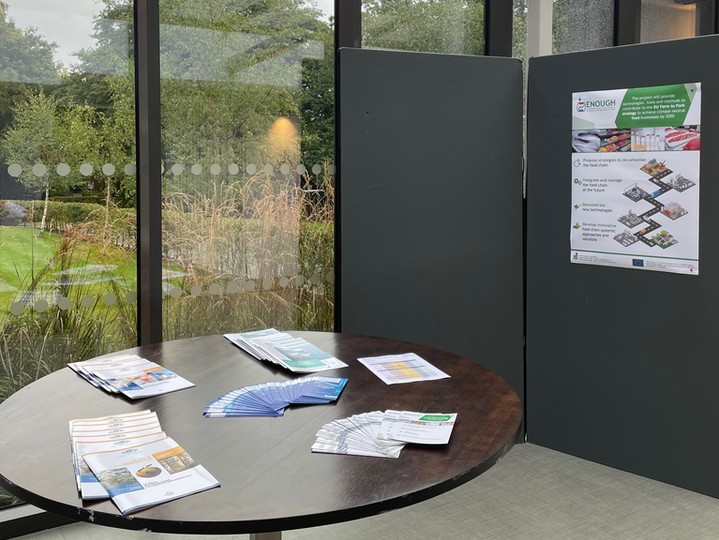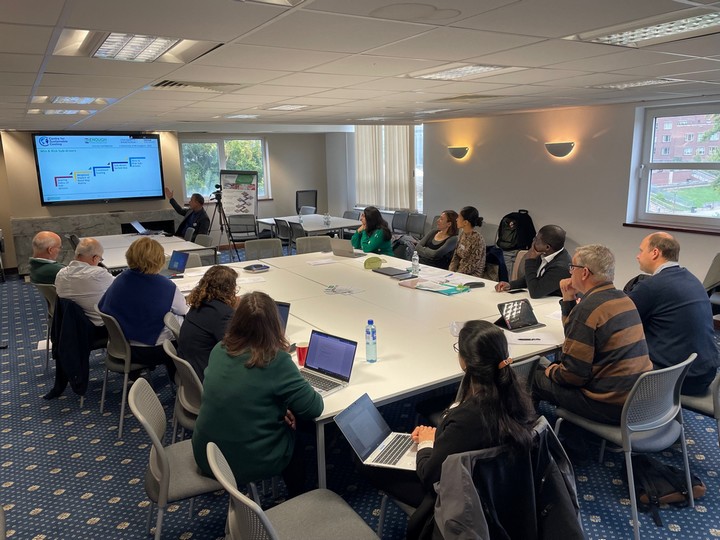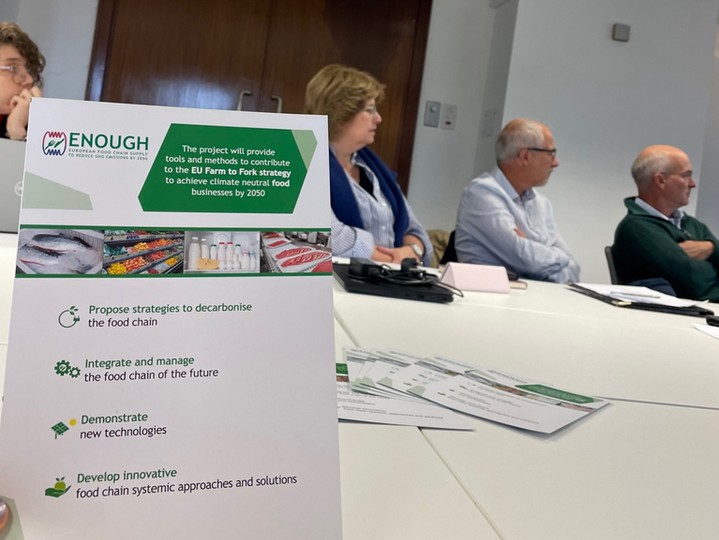The ENOUGH Team has recently participated in the “The local to global cold-chain summit” organised by Prof. Toby Peters, the director of the Centre for Sustainable Cooling at the University of Birmingham, from 28 to 30 September 2022. The summit brought together more than 50 experts from academia and industry as well as UK and Indian policy makers and members of the ACES team from Rwanda. During the event the team investigated the potential for UK and European research projects to developing innovative cold chain solutions adopting a system approach on how to use, manage, make, store, finance, and regulate the energy and carbon demands through the food chain.
The three-day intensive programme brought together ENOUGH project partners with other UK projects including Zero Emission Cold Chain (ZECC), Sustainable Cold Chains (SCC) and the Africa Centre of Excellence for Sustainable Cooling and Cold Chain (ACES) to cross share knowledge and provide global solutions to build a clean, efficient, and resilient cold chain of the future meeting the Sustainable Development Goals (SDGs).
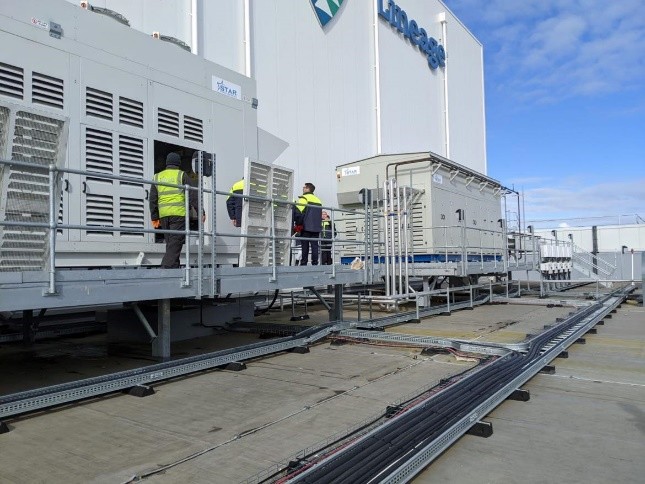
ENOUGH partners at Lineage UK cold store
During the first day of the summit, the participants visited a number of facilities as part of a study tour. This included a technical tour to the Lineage cold store at Peterborough, a visit to Cranfield University post-harvest management facility and a tour of the Advanced Manufacturing Centre in Coventry.
On the second day, round tables were arranged to discuss the big issues and future needs to be considered while developing a resilient cold chain of the future. Topics included climate change, changes in consumer trends, financing cooling systems and business models, training and skills and impact of cooling on reducing food loss and waste. Open floor discussions covered policy implications, the potential to include drones for delivery of vaccines and the future use of the IoT to enhance future food and vaccine supply chains. Opportunities for future collaboration between the various projects were discussed to enable good communication of knowledge and information sharing.
ENOUGH at day 2 of the Summit
The third day was fully dedicated to a project workshop. ENOUGH partners have had thorough discussions about the methodology that should be adopted to establish the 1990 and 2020 baselines and predict the future emissions. In order to produce accurate predictions, high level thoughts were shared on the important role that the horizon scanning task plays in understanding what should the cold chain look like in 2050.
The ENOUGH WP1 Workshop (day 3)






